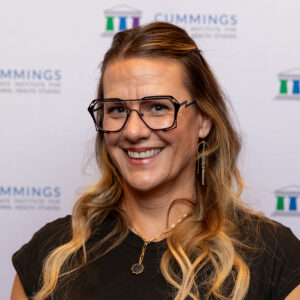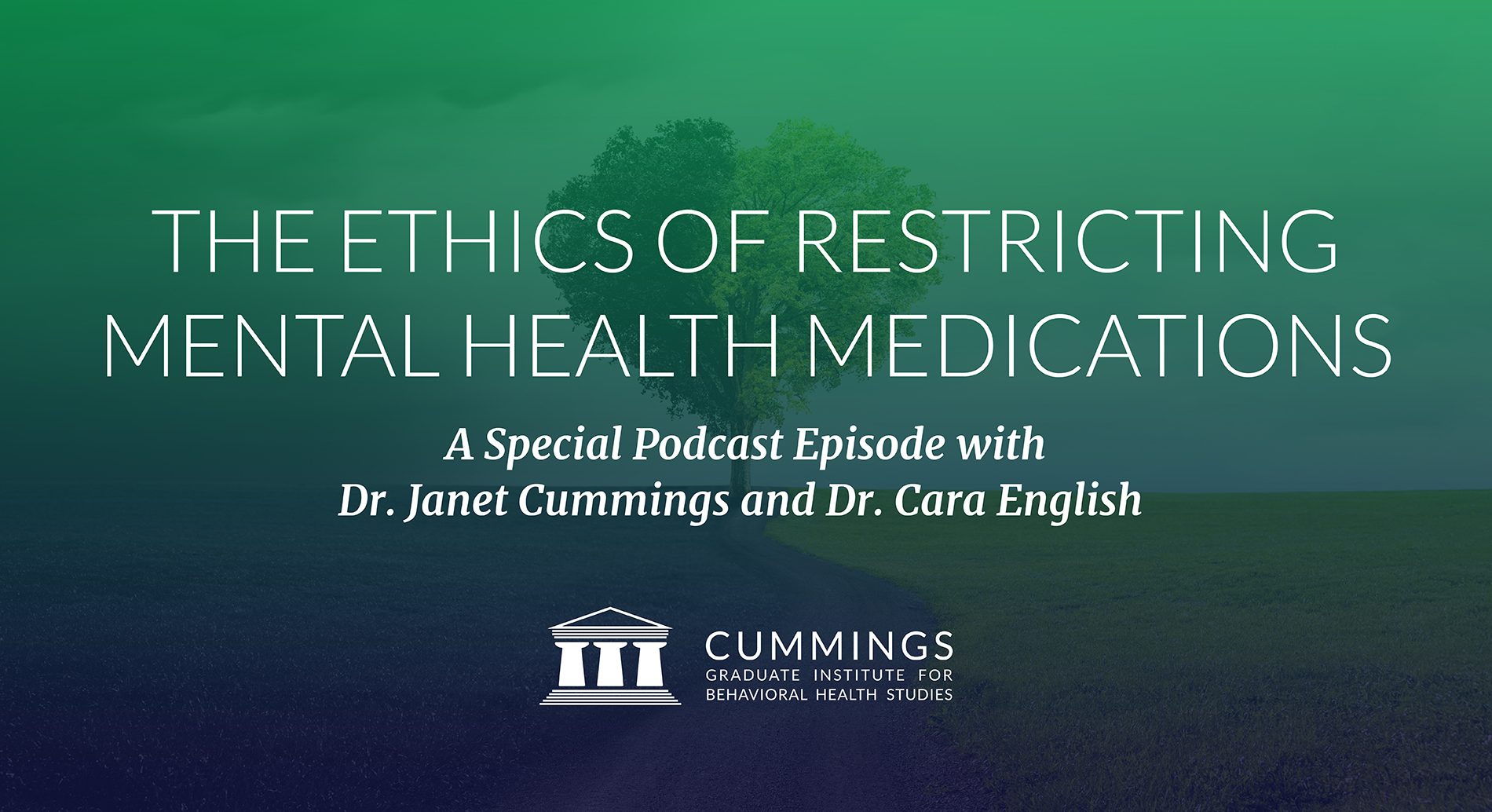The Ethics of Restricting Mental Health Medications: A Special Podcast Episode with Dr. Janet Cummings and Dr. Cara English
This special episode of Disruptors at Work: An Integrated Care Podcast, tackles a pressing issue in mental health: recent policy changes impacting the use of SSRI medications or antidepressants. Dr. Janet Cummings and Dr. Cara English discuss the implications of political decisions affecting psychiatric care, including concerns over misinformation, restricted access to medication, and the vital role of psychotherapy. Dr. Cummings sheds light on the Biodyne Model, advocating for therapy as a primary treatment to best to treat a patient. She also discusses the risks of abrupt medication withdrawal, the influence of pharmaceutical lobbying, and how healthcare providers must unite to advocate for evidence-based care.
This eye-opening discussion is a must-listen for mental health professionals, policymakers, and anyone concerned about the future of behavioral healthcare in the United States. Listen now for an in-depth exploration of the evolving landscape of psychiatric care and policy.
Thank you to our subject matter experts:
-
- Dr. Janet L. Cummings, Psy.D.
- Dr. Cara English, DBH, MA, LAC
About the Subject Matter Experts:
 Dr. Janet L. Cummings, Psy.D.
Dr. Janet L. Cummings, Psy.D.
Dr. Janet Cummings, Psy. D., is the daughter of Drs. Nicholas and Dorothy Cummings, an internationally-recognized psychologist and a clinical social worker. Determined not to be a mental health professional, she earned a Bachelor’s Degree in Pre-med (with a minor in Genetics/Molecular Biology) and Linguistics (with a Classical Greek minor). She went on to earn a Master’s Degree in Linguistics, with a Psycholinguistics emphasis, before deciding to earn a doctorate in Clinical Psychology from the School of Professional Psychology at Wright State University, which she completed in 1992. During her Bachelor’s and Master’s studies, Janet owned and operated a sewing business and taught English as a Second Language.While at the School of Professional Psychology, Janet participated in an experimental program aimed at preparing students for the possibility of prescription privileges for psychologists. In this experimental program, she took the same Pharmacology and Psychopharmacology classes as students in Wright State University’s medical school. Because of her Pre-med background, she excelled in her Pharmacology studies, as well as in Biological Psychology and Neuranatomy/Neurology.
While at Wright State University, Janet was awarded the university president’s annual President’s Commendation, the first to be earned by a graduate student in psychology. In 2007, she was named Wright State University’s Alumna of the Year.
Janet completed her internship and post-doctoral residency at Arizona Biodyne, and remained as a staff psychologist there for several years. With supervision from some top Biodyne psychotherapists, she became a master psychotherapist and expert in the Biodyne Model. She has continued to utilize the Biodyne Model exclusively in her private practice and other work settings.
Janet has supervised over 60 mental health practitioners, many of whom were involved in faith-based counseling. Under her direction, the faith-based counseling center where she functioned as a supervisor earned a national reputation for excellence in counseling.
In 2010, Janet moved from Scottsdale, Arizona to Reno, Nevada in order to be close to the headquarters of The Nicholas & Dorothy Cummings Foundation, which she has served as its President since its inception in 1995. Under Janet’s direction, The Nicholas & Dorothy Cummings Foundation has sponsored many projects aimed at furthering the integration of behavioral health into primary care medicine, including The Cummings Psyche Award (the premier scientific award in the mental health field, with a $50,000 prize) and the launching of the first Doctor of Behavioral Health (DBH) Program at Arizona State University.
Janet is the author of over two dozen journal articles and book chapters, and she has co-authored or co-edited ten books with her father. She served as adjunct professor at both the University of Nevada, Reno and The Forest Institute of Professional Psychology in Springfield, MO. She was Co-founding Associate Director of the Doctor of Behavioral Health Program at Arizona State University, and served as a Professor and Co-founding Sponsor until 2014 when she decided to move the DBH Program to a different venue. She taught Pathophysiology and Psychopharmacology for the ASU DBH Program, where she received outstanding student ratings and was considered a favorite Professor.
Janet resides in Reno with her two children, Mary and Kent. Of the many jobs that Janet has held, she considers motherhood to be the most important and the most rewarding.
 Dr. Cara English, DBH, MA, LAC
Dr. Cara English, DBH, MA, LAC
Dr. Cara English, DBH, MA, LAC is the Chief Executive Officer and Chief Academic Officer of Cummings Graduate Institute for Behavioral Health Studies (CGI) and Founder of Terra’s Tribe, a maternal mental health advocacy organization in Phoenix, Arizona. Dr. English spearheaded a perinatal behavioral health integration project at Willow Birth Center from 2016 to 2020 that received international acclaim through the publication of outcomes in the International Journal of Integrated Care. Dr. English served as Vice-President of the Postpartum Support International – Arizona Chapter Founding Board of Directors and co-chaired the Education and Legislative Advocacy Committees. She currently serves on the Maternal Mortality Review Program and the Maternal Health Taskforce for the State of Arizona. She served as one of three Arizonan 2020 Mom Nonprofit Policy Fellows in 2021. For her work to establish Cummings Graduate Institute for Behavioral Health Studies, Cara was awarded the Psyche Award from the Nicholas & Dorothy Cummings Foundation in 2018 and is more recently the recipient of the 2022 Sierra Tucson Compassion Recognition for her work to improve perinatal mental health integration in Arizona.































